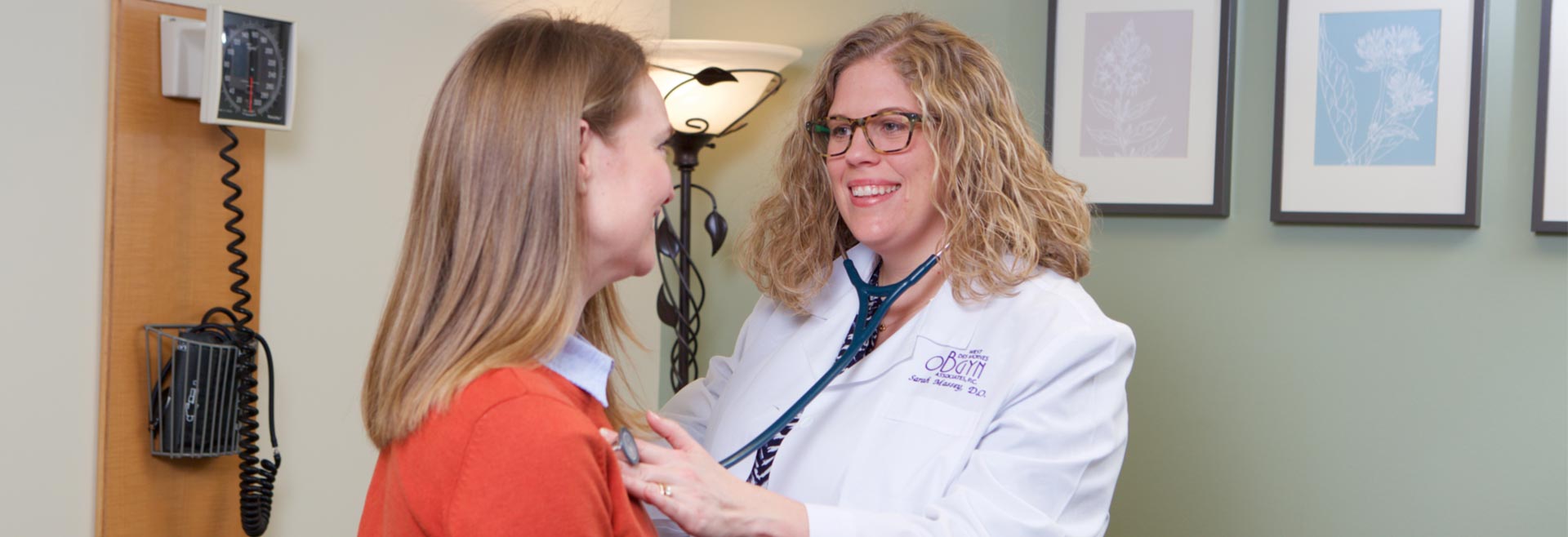In Vitro Fertilization, IVF is a widely known type of assisted reproductive technology that is helping millions of couples conceive every year. Did you know that here in the United States, 1 in every 100 women use IVF treatment to help conceive a baby? IVF works by using a combination of medicines and procedures to help form an embryo and implant it into your uterus.
Why Use IVF?
There are numerous reasons as to why someone may use IVF treatment:
- Your fallopian tubes are blocked or damaged
- The male experiences decreased sperm count or sperm motility
- Experiencing ovulation disorders, premature ovarian failure or large uterine fibroids
- You have had your fallopian tubes removed
- If you have a genetic disorder
- Unexplained infertility
- Prior to egg retrieval in anticipation of attempting conception at a later age or egg retrieval prior to chemotherapy for use after treatment has completed
Am I A Good Candidate?
If you experience these medical conditions, then you should be evaluated by one of our physicians who will work up the possible causes for your infertility. A few reasons why we may recommend consultation with a consultation for IVF or other infertility treatments may be:
- Blocked or removed fallopian tubes
- Inability to ovulate even with medications prescribed by your OBGYN
- Inherited genetic disorders where a couple may wish to use a donor egg or sperm
- Very low/ absent sperm count or testicular disorder
- Prior chemotherapy
Since IVF bypasses the fallopian tubes altogether, many women with blocked or removed fallopian tubes can find success with IVF. For instance, many women wish to delay childbearing and have egg retrieval to increase the odds of conceiving later in life.
The Process
With IVF egg retrieval and embryo transfer, there are a few steps to the process.
Step 1: Fertility Medication
When beginning the IVF process, you will be prescribed medication that will help stimulate viable egg production. During this process, you will be monitored by blood tests and ultrasounds to check in on hormone levels and egg production. Multiple eggs are desired since some eggs may not develop or fertilize after retrieval.
Step 2: Egg Retrieval
After egg production, your physician will remove the mature eggs in a minor surgical procedure. Firstly, you receive an ultrasound to get a visual, then a thin, hollow tube will be inserted into your ovary and egg follicles. Secondly, once the tube is in, it has a suction that will gently pull the eggs out of each follicle. In addition, medication will be provided during this step to relieve patient discomfort.
Step 3: Insemination
During insemination, your eggs mix with either your partner’s sperm or a donor’s sperm and are then stored in a special container where fertilization will occur. If the sperm has low motility, one sperm may be directly injected into the egg (ICSI- intracytoplasmic sperm injection). This process is carefully monitored by lab technicians as the cells become embryos.
Step 4: Embryo Transfer
About 3-5 days after the egg retrieval, the embryos are transferred to your uterus through the cervix by a thin tube. However, this step is typically not painful. But, prepare to spend the remainder of the day resting. After the transfer, you may have to take pills or shots of progesterone for 8-10 weeks. This helps promote the survival of embryos in your uterus. If the embryos attach to your uterine lining and implant, the pregnancy will be monitored by the infertility specialist until 8-10 weeks and then transferred back to your regular OBGYN for the remainder of your prenatal care.

Side Effects
Therefore, you will need to take it easy and rest for the remainder of the day then resume normal activities the following day. As a result, some side effects you could potentially experience during this time include:
- Mild Cramping
- Mild Bloating
- Breast Tenderness
- Constipation
- Passing Fluid (clear or tinged with blood after the procedure)
Some more severe side effects are:
- Ovarian Hyperstimulation Syndrome (OHSS)
- OHSS can cause your ovaries to swell and become very painful. OHSS can even cause nausea, vomiting, shortness of breath, and/or severe stomach pain and bloating.
- Heavy Vaginal Bleeding
- Pelvic Pain
- Blood In The Urine
- A Fever Over 100°F
If you experience any of these severe side effects, make sure you contact your physician immediately.
There are many reasons someone may want to pursue infertility treatments including IVF. You may even choose to delay childbearing and freeze your eggs for the future. Talk to your obstetrician at West Des Moines OBGYN about egg retrieval, infertility treatments, and IVF treatment to see if you are a good candidate.


